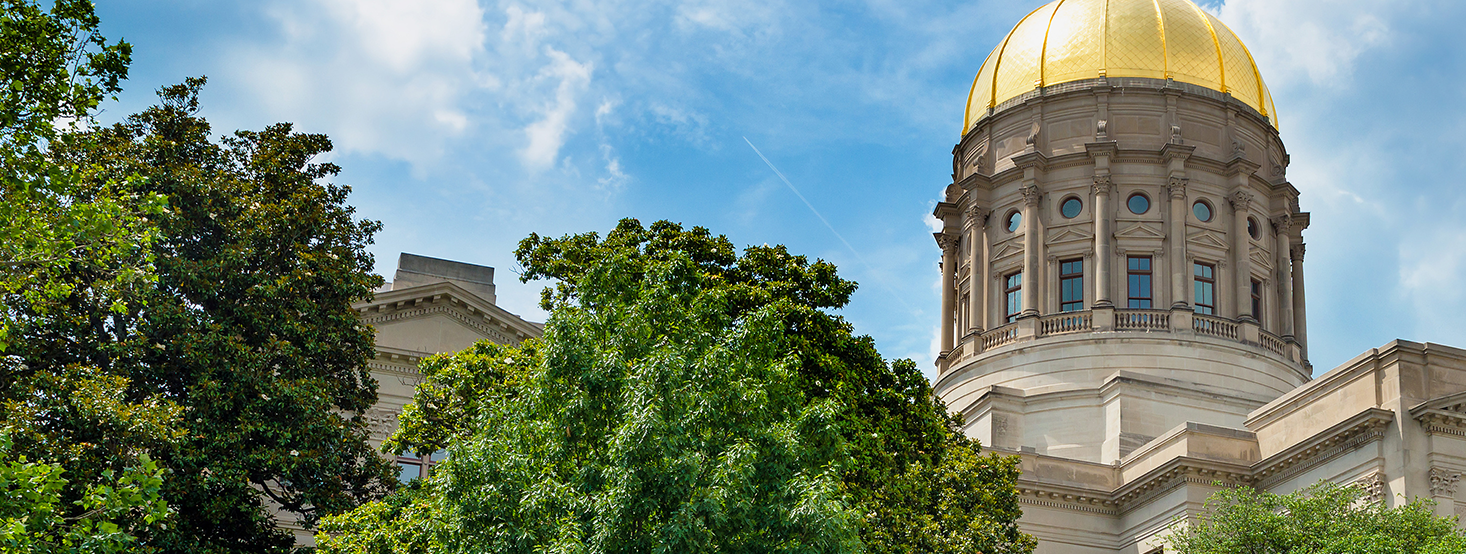The Georgia General Assembly convened on January 13 for the second year of the 2019-2020 biennial session. The biggest challenge lawmakers face in their 40-day session is adopting a balanced state budget for 2021, especially since the state had budgeted for a 3% revenue growth but the actual rate was about 1%. Governor Brian Kemp is committed to keeping his campaign promises to reduce government spending and increase teacher pay. To do so, he has directed state agencies to reduce spending, other than a small number of exemptions including K-12 and higher education funding, Medicaid, and transportation infrastructure.
Here are several of the top issues Georgia lawmakers will likely address during the 2020 legislative session:
Health Care
Expanding access to medical care is a priority, and lawmakers will likely discuss loosening restrictions on PAs and APRNs, including nurse practitioners and nurse-midwives.
To increase access to care, Gov. Kemp submitted two Medicaid waiver requests to the federal government for consideration. Lawmakers will determine health care appropriations, particularly regarding the challenges associated with prescription drug costs, rural health care, and uninsured patients.
E-cigarettes and vaping have become national crises, and Georgia lawmakers will discuss efforts to curb the use and future impact related to these items. Another priority is reducing maternal mortality rates; Georgia currently ranks last in maternal mortality with a rate of 20.5 deaths per 100,000 live births, well behind the national average of 13.3.
Budget & Income Tax
Lawmakers will consider reducing the state income tax by another quarter percent, weighing the impact of an election-year tax reduction against the state’s ability to continue providing services with less revenue. House Speaker David Ralston created the House Special Committee on Economic Growth to hear input on new industries that would generate revenue so the state budget can grow without raising taxes.
Gaming
Lawmakers may move forward with gaming legislation to provide additional revenue streams. The House and Senate held committee hearings during the interim on topics ranging from authorizing sports betting as part of a limited expansion to allowing full spectrum casinos and horse racing. Georgia passed a constitutional amendment in 1992 creating the Georgia Lottery, but now lawmakers must decide whether the amendment is broad enough to allow for these types of gaming or if a public referendum and constitutional amendment are necessary.
Environment
Agriculture, Georgia’s top industry, took a hit from Hurricane Michael in 2018, and lawmakers will explore ongoing opportunities to support the citizens and businesses of rural Georgia. Legislation allowing rural electric companies to offer high-speed internet in outlying counties is likely to be introduced. Following the national trend of marijuana legalization, hemp-growing regulation will be discussed.
Education
Last year, lawmakers approved a $3,000 pay raise for teachers; this year, the second half of the plan – a $2,000 raise – will be discussed. We expect Republican lawmakers to bring back a voucher bill that died in session last year. Opponents argue that the voucher system is costly and may not benefit the rural communities that don’t have many private and public charter school options.
The demand for workers with postsecondary education is increasing and Georgia faces a skills gap, so improving higher education outcomes is a state priority. Dual enrollment program funding and accessibility are up for discussion, and lawmakers will likely introduce legislation to establish parameters for technical and academic dual enrollment programs.













